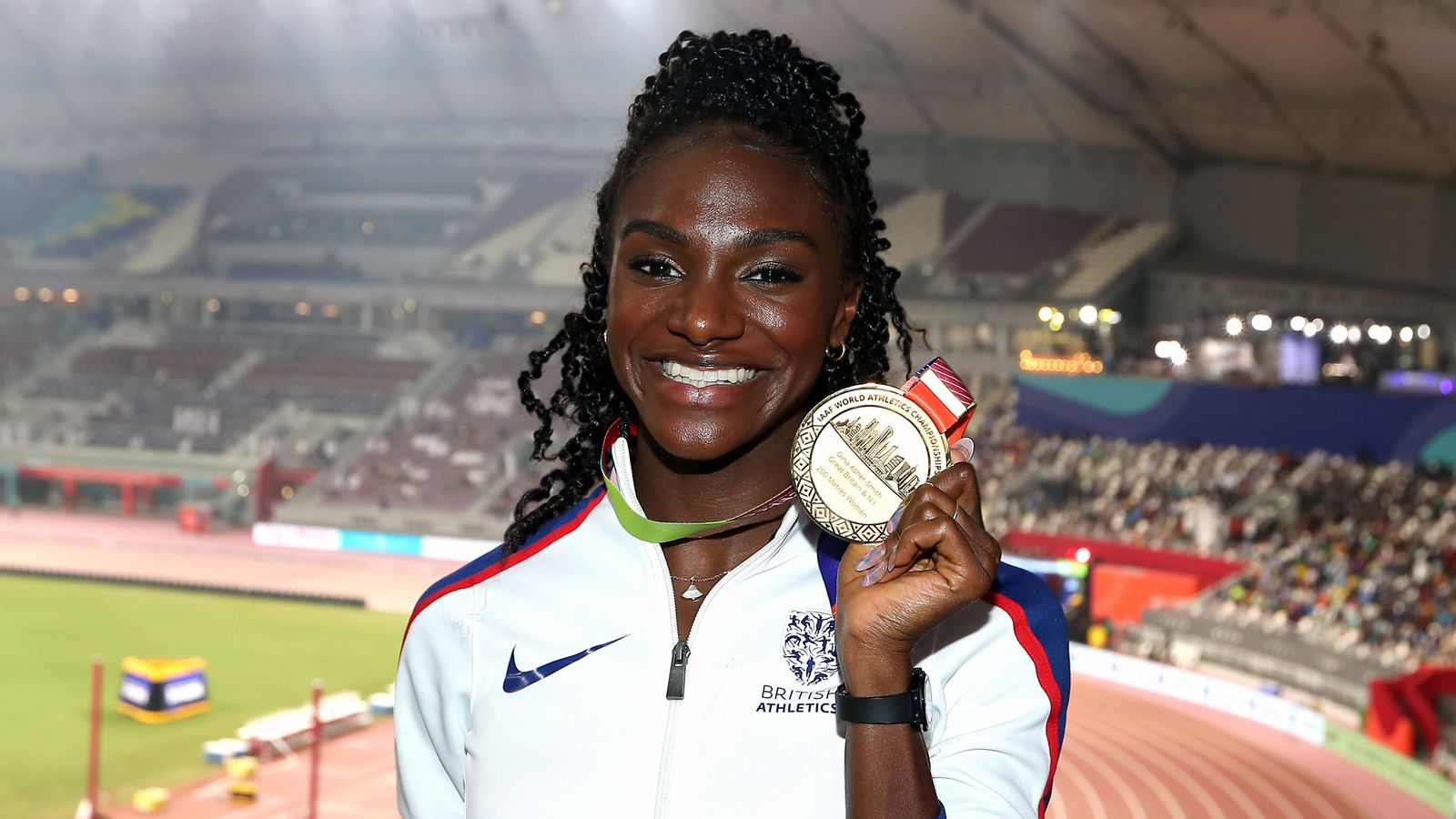Stopping athletes taking the knee at the Tokyo Olympics would be “completely unenforceable”, Dina Asher-Smith has said.
While not saying whether she would be doing so herself, the British sprinter added that “protesting and expressing yourself” are a “fundamental human right”.
The International Olympic Committee (IOC) had “no choice” when it decided to roll back restrictions banning demonstrations, the track star said.
The IOC lifted its Rule 50 earlier this month. The regulation states that “no kind of demonstration or political, religious or racial propaganda is permitted in any Olympic sites, venues or other areas”.
Had it remained in place, Asher-Smith said there would have been “loads of athlete protests at the Games and it would have been very embarrassing for them”.
Bad publicity would have been beamed into televisions across the world, she added.
“If you were to penalise someone for standing up against racial inequality, how on earth would that go, how on earth are you going to enforce that?” she said.
“Would you revoke someone’s medal for saying racism is wrong? But I think it’s good they have lifted it. How would you police that, particularly when people feel so strongly about that right now?
“Also, if you were to penalise someone or revoke a medal, how would that go optically?”
Footballers have been taking the knee as part of worldwide protests against racism which began following the murder of a black man, George Floyd, by a white police officer in Minneapolis last year.
Asher-Smith, who will compete in the 100 and 200 metres, said that leaving the IOC rule in place could have led to a farcical situation.
She explained: “I did see it as completely unenforceable and I think they had no choice but to lift it otherwise they would have been faced with loads of athlete protests at the Games and it would have been very embarrassing for them.
“Unless they want to say they are against people being against racism I didn’t see how that was going to happen.”
She also invoked history. “Some of the Olympics’ most iconic moments have been the black power salute by Tommie Smith (in 1968),” she said.
“That is something people remember the Olympics for, something they’re very proud to see at the Olympic Games.
“So to think they’re suddenly going to get up and say ‘absolutely not’ – I think they’d be shooting themselves in the foot.”
Asher-Smith begins competing on 30 July – the first morning of athletics – in the 100m heats, with the semi-final and final the following day.






















